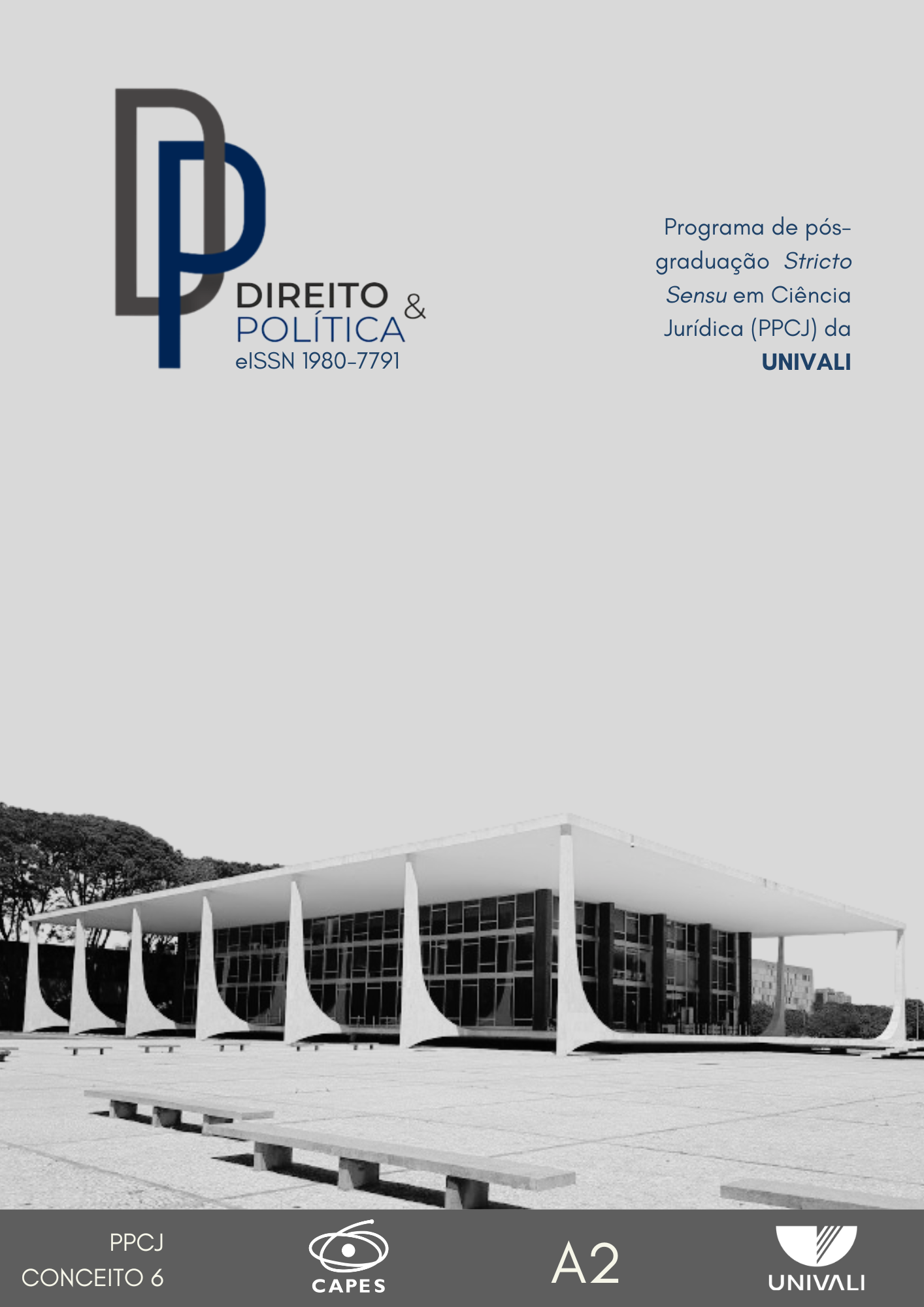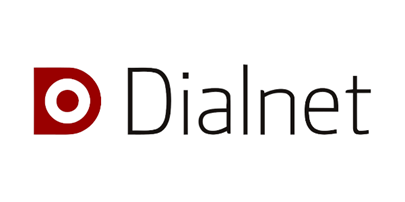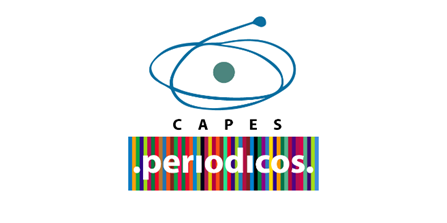THE OBLIGATION OF PRIOR RESOLUTION OF THE CONFLICT AS A PROCEDURAL ASSUMPTION AND CONSUMER PROTECTION AGAINST PROCEDURAL NEOLIBERALISM
DOI:
https://doi.org/10.14210/rdp.v19n2.p199-223Keywords:
Access to justice, Action’s conditions, process modelsAbstract
Contextualization of the theme: Current doctrine has focused on the search for solutions that imply greater efficiency in the justice system. Among the objects of these researches is the one that warns about the excessive number of cases that are being processed in the Brazilian Judiciary. Thus, alternatives are sought to create general conditions of access to justice from the perspective of access to a fair legal order, which implies a speedy and effective justice. The solution for this segment of the doctrine is to carry out a reinterpretation of the concept of jurisdiction, the interest in acting as a condition of action and the very concept of access to justice.
Objectives: This article aims to discuss this doctrinal segment from a critical point of view, analyzing whether the suggested proposals meet the fundamental right of access to justice, as a basic social right.
Methodology: as for the methodology used, in the investigation phase, bibliographic research was used, as well as data collection, especially from the National Council of Justice, regarding the numbers of the Judiciary.
Results: the work was developed from a criterion that identified the evolution of the process from the perspective of the evolution of the very concept of State, in this way, it was verified that the political phase through which the Brazilian State passes, that is, under the Influences of neoliberalism, the process has also tended to be developed under neoliberal legislation, very close to the civil procedure of the 1800s, thus limiting the fundamental social right of access to justice.
Downloads
References
AMARAL, Francisco. A descodificação do direito civil brasileiro. Revista da Academia Brasileira de Letras Jurídicas, n. 13-14, p. 123, 1996.
BOBBIO, Noberto. O positivismo jurídico: lições de filosofia do direito. São Paulo: Ícone, 1995.
BRASIL. CONGRESSO NACIONAL. Medida Provisória 1040/2021. Disponível em https://legis.senado.leg.br/sdleg-getter/documento?dm=8948194&disposition=inline. Acesso em 24.09.22.
BRASIL, CONSELHO NACIONAL DE JUSTIÇA. Justiça em Números 2022: ano-base 2021. Brasília: CNJ, 2022. Disponível em https://www.cnj.jus.br/wp-content/uploads/2022/09/justica-em-numeros-2022-1.pdf. Acesso em: 24.09.22.
CAPPELLETTI, Mauro; GARTH, Bryant. Acesso à Justiça. Tradução de Elen Gracie Northfleet. Porto Alegre: Sérgio Fabris Editor, 1988.
CAVALIERI FILHO, Sergio. Programa de direito do consumidor. 2. Ed. São Paulo: Atlas, 2010.
GRECO, Leonardo. Instituições de Processo Civil. Vol. I. 5. Ed. Rio de Janeiro: Forense, 2015.
HELLMAN, Renê Francisco. Intime-se a parte a conciliar sob pena de multa - reflexões sobre a obrigatoriedade da audiência de conciliação ou de mediação à luz da noção de processo como garantia de liberdade. Coluna Garantismo Processual. Empório do direito. Disponível em: https://emporiododireito.com.br/leitura/101-intime-se-a-parte-a-conciliar-sob-pena-de-multa-reflexoes-sobre-a-obrigatoriedade-da-audiencia-de-conciliacao-ou-de-mediacao-a-luz-da-nocao-do-processo-como-garantia-de-liberdade. Acesso em 24.09.2022.
LAMY, Eduardo de Avelar. Aproveitamento de meios no processo civil. 2. ed., rev., atual., ampl. Salvador: Jus Podivm, 2021.
LÔBO, Paulo Luiz Netto. Constitucionalização do direito civil. Revista de informação legislativa, v. 141, p. 99-109, 1999.
MANCUSO, Rodolfo de Camargo. Acesso à justiça: condicionante legítimas e ilegítimas. 3. Ed. Revista, atualizada e ampliada. Salvador: Juspodivm, 2019.
MANCUSO, Rodolfo de Camargo. A resolução dos conflitos e a função judicial no contemporâneo Estado de Direito. 3. ed. revista, atualizada e ampliada. Salvador: Jus Podivm, 2020.
MARINONI, Luiz Guilherme; ARENHART, Sérgio Cruz; MITIDIERO, Daniel. Novo curso de processo civil. Vol. I. 3. ed. rev., atual., e ampl. São Paulo: Editora Revista dos Tribunais, 2017.
MENDES, Aluísio Gonçalves de Castro e SILVA, Larissa Clare Pochmann da. Acesso à justiça: uma releitura da obra de Mauro Cappelletti e Bryant Garth, a partir do Brasil, após 40 anos. Revista Quaestio Iuris, vol. 08, nº 3, Rio de Janeiro, 2015. DOI: https://doi.org/10.32853/01232479.v41.n41.2015.367
MENGER, Antonio. El Derecho civil y los pobres. Buenos Aires: Atalaya, 1947.
NUNES, Dierle; BAHIA, Alexandre; PEDRON, Flavio. Teoria geral do processo. 2. ed., ver., atual., ampl. Salvador: Jus Podivm: 2021.
PINHO, Humberto Dalla Bernardina de. A releitura do princípio do acesso à justiça e o necessário redimensionamento da intervenção judicial na resolução dos conflitos na contemporaneidade. Disponível em: http://www.cidp.pt/revistas/rjlb/2019/3/2019_03_0791_0830.pdf. Acesso em 24.09.22.
ROCHA, Amélia Soares da; MIRANDA, Luiz Fernando Baby. Se é para reduzir judicialização, o foco é a mudança da postura do fornecedor. Revista Consultor Jurídico. Disponível em: https://www.conjur.com.br/2021-jun-30/garantias-consumo-reduzir-judicializacao-foco-mudanca-postura-fornecedor Acesso em 24.09.22.
ROSENVALD, Nelson. O direito civil em movimento: desafios contemporâneos. 2. ed. Revista e atualizada. Salvador: Jus Podivm, 2018.
SARLET, Ingo Wolfgang; MARINONI, Luiz Guilherme; MITIDIERO, Daniel. Curso de Direito Constitucional. 7. ed. revista, atualizada e ampliada. São Paulo: Saraiva, 2018.
SCHREIBER, Anderson. Novos paradigmas da responsabilidade civil: da erosão dos filtros da reparação à diluição dos danos. 5. ed. São Paulo: Atlas, 2013.
TARTUCE, Flávio e NEVES, Daniel Amorim Assumpção. Manual de Direito do Consumidor: direito material e processual. 3ª ed. São Paulo: Método, 2014.
Downloads
Published
How to Cite
Issue
Section
License
Na qualidade de autor(es) da colaboração, original e inédita, sobre o qual me(nos) responsabilizo(amos) civil e penalmente pelo seu conteúdo, após ter lido as diretrizes para autores, concordado(amos) com o Regulamento da Revista Eletrônica Direito e Política e autorizo(amos) a publicação na rede mundial de computadores (Internet), permitindo, também, que sua linguagem possa ser reformulada, caso seja necessário, sem que me(nos) seja devido qualquer pagamento a título de direitos autorais, podendo qualquer interessado acessá-lo e/ou reproduzi-lo mediante download, desde que obedeçam os Direitos Autorais.


















